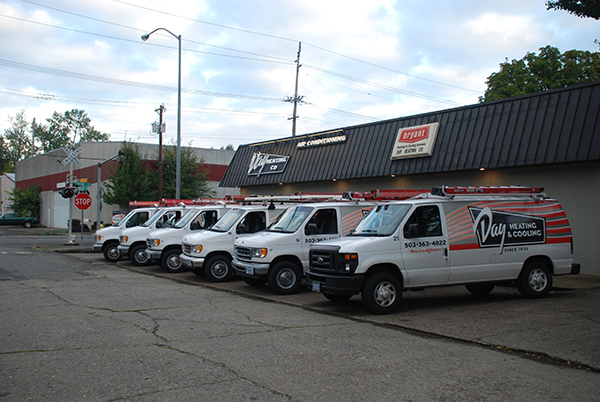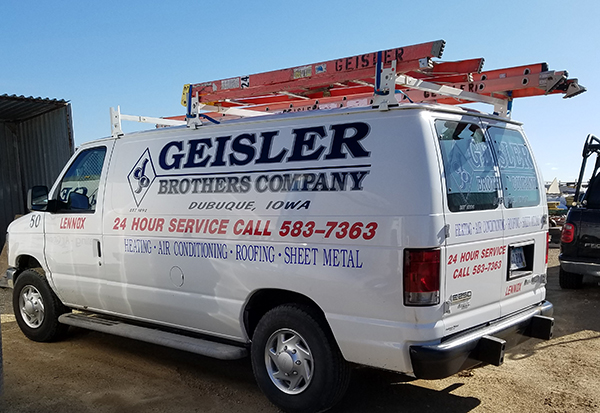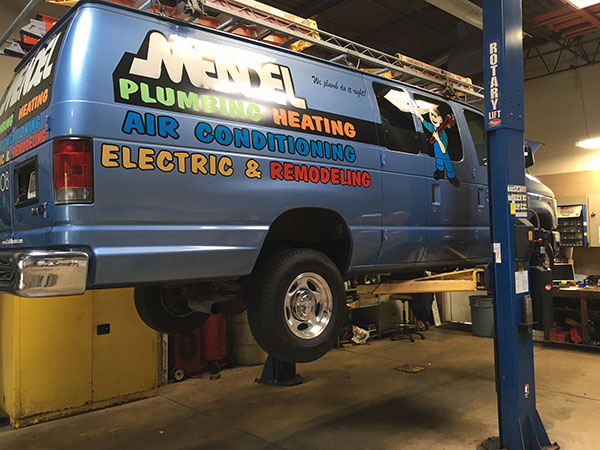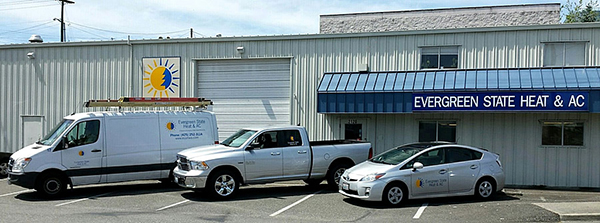
Brian Bonnema starts his workday at Mendel Plumbing and Heating Inc. around 3 a.m. As the head mechanic of the St. Charles, Ill.-based company, he has a fleet of 40 trucks to inspect.
Bonnema starts up each vehicle, listening for any signs of trouble with the engines or other parts. “A lot of work is getting done in the wee hours of the morning,” says Mendel’s president, Tom Mascari. “Well before anybody’s even out of bed, Brian is changing oil and inspecting brakes and rotors and checking fluids and batteries. Just having him in the vehicles and running them every day, I think, makes a big difference in the quality of the care we’re able to give our trucks.”
For outside observers, how sheet metal and HVAC companies like Mendel manage their trucks may seem like an afterthought. In reality, executives in the sector say effective fleet management is critical to their businesses and can even create competitive advantages.
First Line of Defense
Not surprisingly, contractors overwhelmingly cite vehicle maintenance and upkeep as the top challenges they face in managing their fleets. Many companies employ full-time mechanics like Bonnema to look after their vehicles.

In fact, preventative care can be just as im-portant as repairs in terms of getting the most out of vehicles.
“We used to be in the category of when something breaks on a car, that’s when it gets addressed,” says Jim Klopfenstein, president of Day Heating Co. in Salem, Ore. “And I can tell you that our vehicles didn’t last as long.”
Russ Kimball, owner and general manager of Everett, Wash.-based Evergreen State & AC, says he keeps an eye on maintenance records and addresses it every week with his staff during safety meetings. He makes a point of asking his drivers to bring in documentation of the latest oil changes for their vehicles at three-month intervals.
Meanwhile, employees are often seen as the first line of defense in making sure the vehicles keep running smoothly.

“We rely on the drivers to make us aware of any issues,” says Todd Geisler, president of Geisler Brothers Co., a sheet metal and HVAC contractor in Dubuque, Iowa. “If there’s any problem with brakes, tires or rotors, it’s up to each individual to make us aware of it.”
According to Klopfenstein, his company has run into problems when drivers have failed to flag emerging issues with one of the roughly 20 vehicles in its fleet.

“Sometimes you find out something’s been going on when you’re talking to a driver standing beside a broken-down vehicle on the side of the road,” Klopfenstein says. “The drivers had a lot of notice, but they just didn’t tell you.”
To help avoid some of that user error, technology is beginning to play a larger part in maintenance and management. For example, Geisler Brothers uses a software module to keep track of the maintenance work done on all 24 of its vehicles, along with expenses. Additionally, the program monitors the vehicles for specific milestones, such as reaching the mileage for when their tires need to be rotated.

“If an employee says the transmission is bad on a vehicle or it needs $1,000 worth of rotor repairs, the first thing I can do is get a report to see what kind of condition the vehicle is in and how much money we have been putting into it,” Geisler notes. “Then we can make a determination to replace it or repair it.”
GPS to the Rescue
Some sheet metal and HVAC contractors are discovering the benefits of installing GPS systems on their vehicles. In certain cases, they’re using GPS simply to keep track of where the vehicles are. That way they know how long service technicians are spending on job sites, for example.
According to some contractors, GPS tracking also makes it easier to coordinate service calls. If a new call comes in or a technician needs to be diverted to another job site, the home office can base those assignments on where the vehicles are located. That saves significant time and effort.

Some companies find that the costs asso-ciated with using GPS tracking on their trucks don’t fit their budgets. For instance, Kimball says Evergreen bailed out on putting GPS tracking on its vehicles following a trial run.
“As a relatively small company, I know my employees — where they are, who I can trust and who I can’t,” Kimball says. Although, he adds that if GPS systems become more eco-nomically feasible, he might consider implementing them in the future.
Keeping Things Clean
Typically, sheet metal and HVAC contractors treat their vehicle fleets as a basic cost of doing business. Some executives, however, look at their company’s trucks and see an opportunity for marketing.
Take Mendel, for example. Mascari notes that the company prides itself on a brand image of high quality and premium service. When it comes to the company’s trucks, that means ensuring that they’re washed and cleaned out on a daily basis. Bonnema also watches for signs of decay on the trucks, such as rusting.
Those kinds of practices may sound like overkill. Yet, they do fit with the company’s broader goals of developing and promoting a healthy company culture.
“When our vans pull up to clients’ homes, that’s a brand image impression, right off the bat,” Mascari says. “If they see we have a grimy old van, what does that say about the quality of our service. We do everything with quality, including how we manage our fleet. Would you really trust us to maintain your home if we can’t even maintain our trucks?”
MENDEL »
DAY HEATING »
EVERGREEN STATE HEAT & AC »
GEISLER BOTHERS »